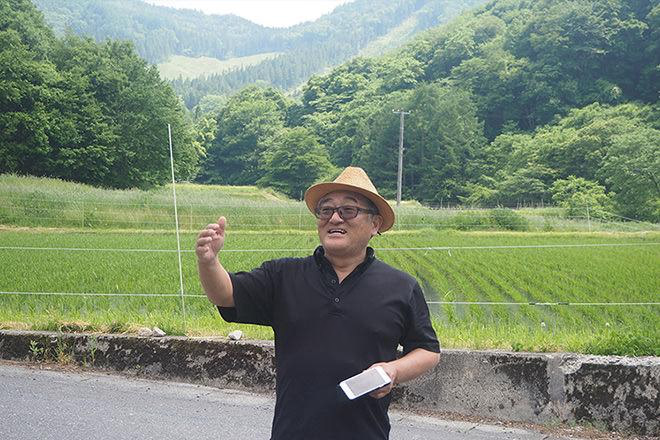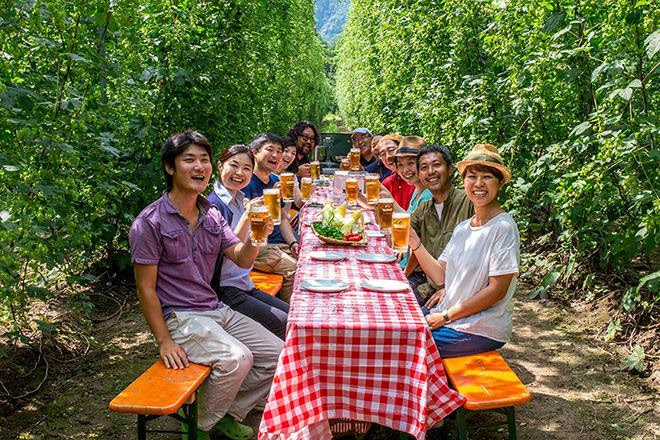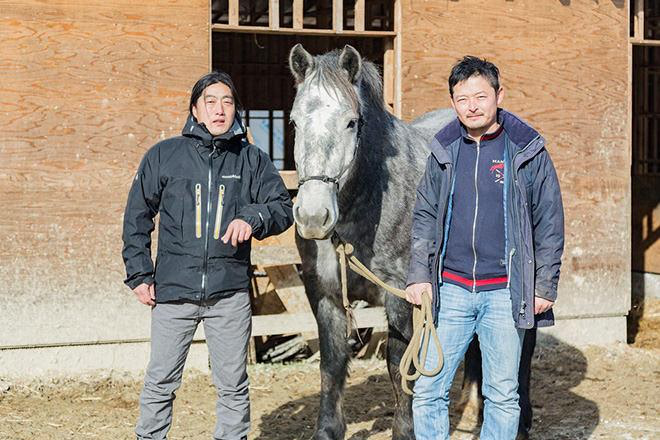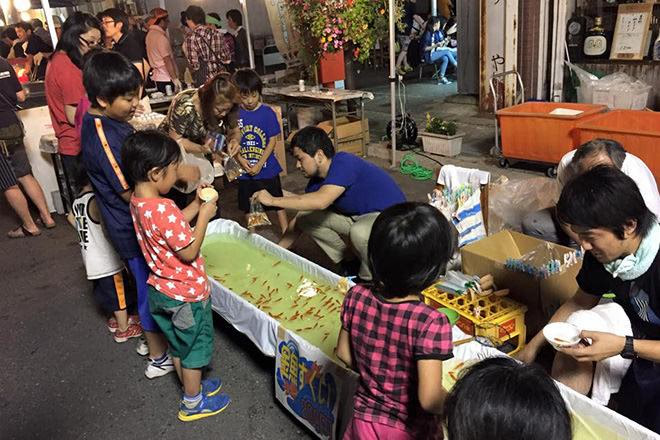This may come as a surprise, but the second Field Hack, " Field Hack TONO ", has been launched.
Five HACK themes await you in Tono City, Iwate Prefecture!
Field Hack is one of the projects in which the Production Department is involved. It is a project co-hosted by Google Innovation Tohoku and the Institute of Advanced Media Arts and Sciences. Teams of engineers, designers, project managers, and other members with the skills necessary for prototype development from all over Japan form teams to explore the potential of the region, set in Tono City, Iwate Prefecture.
Hello, this is Uehara from the Production Department.
My mission (I think) is to connect the power of technology and science to society in some way, and as a project manager, I am involved with Field Hack from the planning stage onwards.
The biggest feature of this project is, as the name suggests, the "Field" aspect. Participants visit the local area, carry out fieldwork on a theme set by the local community, and based on the clues they discover there, they use their team's skills and ideas to create a prototype, which they then test out in the field.
It is up to each participant to come up with ideas to discover possibilities through fieldwork and link those possibilities with technology.
There is no set "format," so this is a moment where your creativity will be put to the test.
What kind of ideas do you think you could come up with to develop a prototype?
Uehara also visited all the fields the other day, so he will introduce them along with the theme content!
Let's imagine together what you can do!
"Fermentation"
Creating a new doburoku/fermentation culture and industry unique to the Doburoku Special Zone

Tono has a tradition of preserving crops harvested in spring and summer by salting them to ensure food for the harsh winter. This wisdom has been passed down to fermentation and aging specialists who maximize the flavor and nutritional value of ingredients such as doburoku, salami, cheese, and aged meat and seafood.
Every single meal he served was delicious, and I could feel the dedication of a craftsman who has been self-taught (how?) for over 10 years through trial and error. I was really impressed by what he said: "Mold and bacteria teach me everything."
So, where is the moment when technology overlaps with the artisan's experience?
Visualizing bacteria invisible to the naked eye?
Will it be possible to check and control the fermentation status remotely?
"Marginal Village (Community)"
Total population: 21. Creating a new circulation system for a marginal village

The Yonezu district is a marginal village with a population of 21 people and an average age of 70, and is a place that embodies the social problems faced by Japanese villages, such as depopulation and an aging population. Here, energetic local residents are taking on a challenge that will determine the future of their community.
I visited the Yonetsu area after lunch, and was immediately greeted with beer and a large amount of rice by the villagers. The place had a kitchen that the villagers had recently built, large enough to cook a proper meal, and they were planning to open a cafe there. I also heard about their passion for manufacturing, including mobility and energy. The most memorable words they said were, "We want to leave behind proof that we lived." They were passionate about leaving something behind in the form of a physical object.
What about on this theme...
Visualization and indexing of natural energy?
Create a local mobility package that anyone can easily make?
"Brewing"
Tono, Japan's top producer of hops, is becoming a beer town

Tono has been producing domestic hops for 50 years and is the leading hop producing region in Japan. Currently, an initiative is underway to train new hop farmers who will pave the way for the next era. In addition to hop cultivation, the city is also planning to produce everything related to beer, including crops used in beer and brewing, and to evolve into a beer village.
Hops are usually grown from late March to late August, and although there are some parts that are handled by machines, such as using aerial work vehicles to allow the vines to grow to about 5m, and using a tractor with scissors for harvesting, I got the impression that there is a lot of manual work involved, such as wrapping the buds around string, cutting some branches with pole pruners to increase the yield, etc. As well as improving the current situation, with the spread of craft beer culture, there is a growing demand for a diversity of hops, and I feel that there is great potential for the future.
I thought about this from two angles: hop cultivation and beer village...
Can drones be used to perform work at height?
How can users mix hops online to create their own original beer?
"Satoyama (Life)"
Creating a community centered on the natural capital of Satoyama, which people have benefited from

Tono is surrounded by mountains on all sides and is a rural area rich in natural resources such as water and forests. The area has a strong connection with horses, such as horse transportation, and this inspired the Nanbu curved houses, which are a typical example of Tono's unique house architecture. However, the old ways of life are gradually being lost, and both the rural areas and nature are losing their original appearance. Therefore, a movement has begun to redefine the region, create a local economy using natural capital, and connect it to a new society.
The river that flows from Tono continues all the way to Ishinomaki city in Miyagi prefecture, and they said they would like to visualize the natural flow of the river as a single piece of data and share values about the nature of natural capital and how to utilize it across regions.
It's a bit of a big topic, but...
Mapping water flows and how water is used in each region?
Hourly horse rental service?
"Shopping Street (Tourism)"
Creating a mechanism to attract people from all over the world to Tono, which has long been a key transportation hub

Tono, the birthplace of "The Tales of Tono," which paved the way for Japanese folklore studies, is an inland city that was a key transportation hub through which a diverse range of people passed. It is a unique place in that people who traveled around Japan visited Tono, absorbed the stories and culture brought from there, and developed it into their own unique style. However, it is also true that the vestiges of its former appearance are fading due to the changing times.
For this theme, we will be working with Mr. Matsuda, the third generation owner of Matsuda Shorindo, a company founded over 140 years ago. We aim to inherit the history and geographical context of Tono, while creating a global system where people from Japan and abroad can intersect, giving birth to diverse cultures, and circulating the local economy.
I thought about whether we should focus on tourism or attracting permanent residents.
Communicating the history of the shopping district through VR?
Making vacant storefronts visible and encouraging people to move in?
Those were the five themes. Did they give you any exciting ideas?
It may not have been clear from the text.
Come join us and hack the Field with your ideas and technology!
I think that actually going to the places and seeing and hearing things has changed my perspective.
I believe that this will be the moment when we can make the most of the power of technology.
We are currently accepting entries. The deadline is Monday, September 26th.
For more details, please visit the Field Hack TONO special page .

